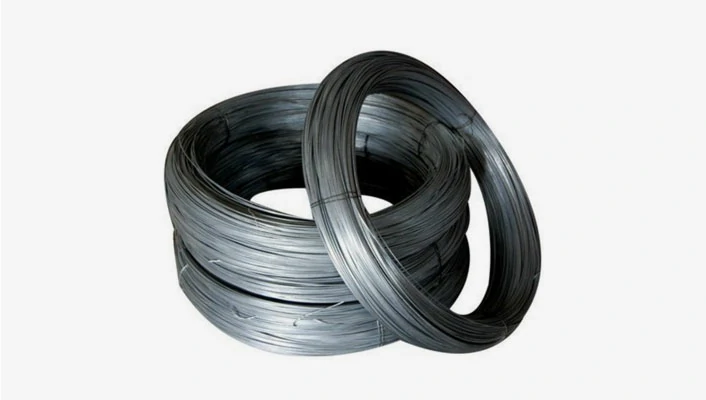Different Varieties of Mesh Fencing for Various Applications and Needs
Types of Mesh Fencing A Comprehensive Guide
Mesh fencing is a versatile and popular choice for both residential and commercial properties. It provides security, defines boundaries, and is aesthetically pleasing, making it a preferred option for many. This article delves into the various types of mesh fencing, highlighting their benefits and suitable applications.
1. Chain Link Fencing
Chain link fencing is one of the most common types of mesh fencing. Made from galvanized steel wire, it is woven into a diamond pattern. This type of fencing offers excellent visibility and airflow, making it ideal for enclosing yards, playgrounds, and sports fields. Chain link fences are durable and resistant to rust, providing long-term security without sacrificing visibility. They can be enhanced with vinyl coating for added protection and aesthetics.
Advantages - Cost-effective - Easy to install and maintain - Versatile for various applications
Disadvantages - Limited privacy - Can be easily climbed unless topped with barbed wire.
2. Welded Wire Fencing
Welded wire fencing consists of wires that are welded together at intersections, creating a stronger and more rigid structure compared to chain link fencing. This type of mesh fencing is often used for agricultural purposes, such as keeping livestock contained or protecting gardens from unwanted animals. Welded wire panels are available in different heights and mesh sizes, providing flexibility based on the intended use.
Advantages - Better structural integrity - Often used for animal enclosures due to its strength
Disadvantages - Heavier and potentially more expensive - More challenging to install compared to chain link.
3. Expanded Metal Fencing
Expanded metal fencing is made from sheets of metal that have been cut and stretched to form a mesh pattern. This type of fencing is incredibly strong and is often used in industrial applications, such as securing warehouses or factories. Expanded metal fencing provides a degree of privacy while maintaining visibility and airflow, making it suitable for both security and aesthetic purposes.
Advantages - High strength-to-weight ratio - Resilient to impact and vandalism
Disadvantages - Can be costly - Limited design options compared to other types of mesh fencing
.types of mesh fencing

4. Stainless Steel Mesh Fencing
For those seeking an ultra-durable and corrosion-resistant option, stainless steel mesh fencing is an excellent choice. This type of fencing is especially advantageous in coastal areas where saltwater can lead to rapid deterioration of other materials. Stainless steel mesh is often used in high-security applications, such as military or government facilities, where strength and longevity are paramount.
Advantages - Exceptional durability and longevity - Low maintenance requirements
Disadvantages - Higher initial cost - Can be overkill for residential applications.
5. Composite Mesh Fencing
Composite mesh fencing combines two materials, typically PVC and metal, to create a lightweight yet sturdy barrier. This innovative fencing type offers the visual appeal of traditional wood or vinyl fencing while maintaining the strength of metal mesh. Composite fences are ideal for residential properties aiming for a blend of security and aesthetic appeal.
Advantages - Aesthetic variety with customizable colors - Resistant to weather and rot
Disadvantages - Can be more expensive than traditional options - Not as strong as fully metal options.
6. Decorative Mesh Fencing
For those who prioritize aesthetics alongside functionality, decorative mesh fencing provides an attractive option. Made from various materials, such as aluminum and wrought iron, these fences often feature intricate designs while offering the necessary security. Decorative mesh is commonly used in gardens, parks, and upscale residential areas, adding elegance without compromising safety.
Advantages - Visually appealing and customizable - Provides security while enhancing landscape design
Disadvantages - Typically higher cost - May not be as secure as chain link or welded wire options.
Conclusion
Choosing the right type of mesh fencing involves assessing your specific needs, budget, and desired aesthetic. Whether you prioritize security, privacy, or appearance, there’s a mesh fencing solution available for every application. By understanding the various types of mesh fencing, you can make an informed decision that will enhance the safety and beauty of your property for years to come.
-
Space-Saving Chain Fence Hacks Vertical Gardening with Cyclone MeshNewsJul.16,2025
-
Innovations in Iron Nail Wire Production for Modern ConstructionNewsJul.16,2025
-
Creative Uses of Wire Netting Fence in Modern Landscape DesignNewsJul.16,2025
-
Barbed Wire Fence Innovations in Anti-Climb TechnologyNewsJul.16,2025
-
Architectural Uses of Umbrella Nails for Aesthetic Roof DesignsNewsJul.16,2025
-
Architectural Uses of Razor Barbed Wire in Secure Urban DesignNewsJul.16,2025




